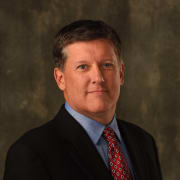A Windy Augusta National Confounds Golf's Best at the Masters: 'As Difficult As I've Ever Played It'

AUGUSTA, Ga. — The beauty of Augusta National was on full display Friday, masking its brutality. The sun shined bright, the temperature rose appropriately and those who attended the second round of the Masters were treated to a glorious day on one of the most famous courses in the world.
Those who played inside the ropes might have viewed it differently.
The shirt-sleeves and sun were a deceiving diversion from the treacherous journey that awaited. Wind gusts were prevalent throughout the day, from a brisk early-morning resumption of the first round to the late afternoon shadows and completion of the second round.
The clue to the madness was the plethora of wind-blown sandwich wrappers, swaying pine trees and sand strewn about putting greens. A former Masters champion had to apologize for dropping an F-bomb picked up on the broadcast after a triple bogey at the 12th. Tyrrell Hatton complained about the slow players in front of his group. Justin Thomas missed the cut by shooting 79, including playing the last four holes in 7 over.
And Tiger Woods made the cut, no small accomplishment for the five-time champion hampered by injuries. His second-round score of 72 was one of just 14 at par or better. And he finds himself seven strokes back of leaders Max Homa, Bryson DeChambeau and Scottie Scheffler.
It should be no surprise that those elite ball strikers are atop the leaderboard through 36 holes. All three got there despite not breaking 70.
“I don’t know if I’ve ever seen it like this,” said Charl Schwartzel, the 2011 Masters champion. “We’ve had a few years where it’s blown, but this is as difficult as I’ve ever played it.”
Told that two-time champion Jose Maria Olazabal called it a 11 on a scale of 1 to 10, Schwartzel said: “Maybe a 12.”
“It was just a scrap all day,” said Tommy Fleetwood, whose 71 got him to a tie for eighth. “I mean, the course is hard enough without the conditions that they’ve had ... nothing’s ever done, like nothing’s safe ever, like whether you've got a three-footer or whatever it is, you're just never done until you've actually got the ball in the hole.
“So it's like a pretty stressful place to play when it's like this.”
Today (75.08) was the highest field scoring average in round 2 of The Masters since 2007, and just the fourth time in the last 30 years the field averaged higher than 75 in the second round.
— Justin Ray (@JustinRayGolf) April 13, 2024
Ludvig Aberg, playing in his first Masters and also in the top 10, was also given a quick introduction to just how treacherous things can be around here.
“It's just the gustiness of the winds,” Aberg said. “Obviously there's so much of it, so it's going to affect whatever shot you're going to hit, whether it's a putt or a chip or a full shot.
“I think it's just obviously kind of try to understand what that's going to do to the ball, which is obviously tricky. Then obviously Augusta National is not the easiest of golf course even when you're playing in dead calm wind. So it just makes it a little bit trickier.”
Aberg would be commended no matter the conditions. Playing in his first major championship, the Swede who played for Europe in the Ryder Cup last year shot 3-under-par 69—the best score of the second round.
Among the reasons Scheffler has been atop the Official World Golf Ranking for the better part of the past year is his ability to strike the golf ball. Seems obvious, but not all professional golfers are built alike, and not all of them hit it with the same precision.
To those who play the game and follow it closely, Scheffler is on another level in that regard. Elite, to be sure. And it matters on a day like he faced Friday. Stray shots and mishits don’t get you very far ever, but they are particularly damaging with the type of conditions the field faced.
And not even he could avoid them. His approach to the 13th green came up short in the water, leading to a bogey 6 which was hardly reason to be ashamed. This was a day of minimizing mistakes, which were inevitable.
DeChambeau followed his first-round leading 65 with a 73 that included a 372-yard drive at the 17th but a missed 6-footer for birdie and then a bogey at the 18th.
“I've never experienced Augusta National in these conditions before,’’ DeChambeau said. “Being able to stay patient and place the ball in the correct locations and just allow myself to be O.K. with not so great shots out there was a key aspect of me playing well.”
Homa followed his opening 67 with a 71. Ranked 11th in the world, he has struggled in major championships, with just a single top-10 finish (a tie for 10th last year at the British Open) and two finishes outside of the top 40 at the Masters.
“Obviously been quite difficult out there,” said Homa, who has six PGA Tour victories but none since early last year. “I struck the ball really well. I've really done everything quite well on the golf course, but most proud of what's gone on with our course management and just controlling thoughts and expectation and all that.
“So it's been fun, and I feel like this—these conditions have helped almost lean into the patience and all the things you hear, the clichés. So I feel like I've done a great job of that and then hit some good shots alongside that.
“It's been quite fun. I am very glad to be inside, I will say.”
It wasn’t quite so fun for some. Defending champion Jon Rahm shot 76 and is 11 shots back. Rory McIlroy, looking to complete the career Grand Slam, will likely leave without that goal attained for the 10th straight year, shooting 77 to fall 11 back.
Jordan Spieth and Justin Thomas both missed the cut, Thomas shooting 79 that included playing the last four holes in 7 over par. U.S. Open champion Wyndham Clark shot a first-round 80 and also missed the cut.
“That will probably go down as hopefully the hardest day at Augusta I’ve ever played,” said Xander Schauffele, who shot 72 and is tied for 15th.
